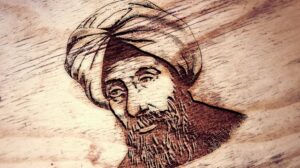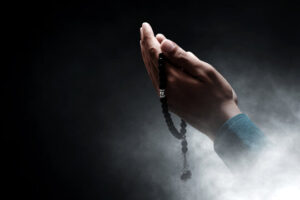
By Dr Imam Rashied Omar
We welcome the blessed lunar month of Rabi` al-Awwal in which our beloved Prophet Muhammad (may Allah’s everlasting peace and blessings be upon him) was born. In general, the Prophet’s birthday is called Maulid al-Nabi, a word that also often denotes the festivities held on this day. An alternative term is Milad al-Nabi, the birthday anniversary of the Prophet, and the passive participle Maulud, from the root w-l-d that underlies all these terms, is also used. Maulud appears, however, more frequently to denote poetry or literature written in honour of the Prophet’s birth and even, more generally, of his life.
Elaborate and colourful celebrations of the Prophet Muhammad’s (pbuh) birthday are an entrenched part of folk Islam in many parts of the world. Our position on the question of the Islamic significance of Maulid al-Nabi has been greatly influenced by the sixteenth-century scholar Jalaluddin Al-Suyuti, who composed a book entitled Husnul Maqsid Final al-Maulid (The Good Intentions in Celebrating Maulid). We concur that neither the Prophet Muhammad nor his companions ever celebrated his birthday and that it was an innovation which was introduced centuries after his demise. We believe, in consonance with Abu Ishaq Al-Shatibi (d.1388), however, that innovation in itself has not been a priori condemned by Islam. Only innovations which violate the explicit and implicit teachings of Islam have been condemned. It is our considered view that maulid celebrations have been and continue to be a revitalising institution for our local community, and as such, can be classified as a good innovation (bid`a hasana). We need to be clear, however, that it is not an obligation and that its format is pliable (subject to change and reform).
The celebration of Maulud al-Nabi affords us a wonderful opportunity to rededicate our lives to the uswa hasana – the beautiful Prophetic model of conduct given to us by the sira and risala of our Noble Prophet Muhammad (PBUH).
For followers of Prophet Muhammad (PBUH) striving to emulate his noble example in the southernmost part of the African continent, it affords us with a wonderful opportunity to reflect on the Prophetic model through the spectacle of our peculiar social context. From this vantage point, we may see three powerful beacons.
Universal Messenger
‘We have not sent thee but as a Universal Messenger to humankind, giving them Glad tidings, and admonishing them against sin. Yet most people do not understand.’ (34:28). Muslims often proudly claim that “All other prophets were sent as local or national Prophets (i.e., to a particular community or area), but Prophet Muhammad was sent as the final and Universal Messenger for the entire world.” No doubt the early community was a clear testimony to the universality of the Prophet’s message and mission. This community included people from diverse ethnic, social and economic backgrounds, such as Bilal an Abyssinian slave, Salman the Persian and Abubaker a wealthy Arab.
The universal character of the Prophetic Model is, however, diametrically opposed to the narcissistic expressions of Islam in the form of ethnic and tribal Islam.
Justice
“We have surely sent Our Apostles with clear signs, and we sent with them the Book and the Balance, so that they may establish justice among humankind.” (Qur’an 57:25). Justice was an uncompromising dimension of the Prophet’s life, indeed the raison de etre of the Prophet’s mission. But justice is also the goal of the struggle of the oppressed and exploited people of our country and the world. What reason do we, who claim to be followers of Prophet Muhammad, have for not fully participating in the struggle of oppressed people for a just social order?
Mercy and Compassion
“We have sent you but as a mercy to the world” (Qur’an 21:107). The main purpose of sending Prophet Muhammad to humanity was to popularise and consolidate the values of mercy and compassion. In light of the above, we need to transform some of our hard-hearted and harsh attitudes towards human beings, especially those who share our common humanity but who do not share our faith.
By internalising and projecting the above three qualities of the Prophetic example, our Maulid al-Nabi celebrations will make South African Muslims become active citizens in the creation and fashioning of a non-racial and just South African society. Let us pray for world peace and justice at this joyous time of celebration and bestow salutations of peace and blessings upon our beloved leader and exemplar, Prophet Muhammad (PBUH):
Allah and His Angels send blessings and salutations of peace on the Prophet: O Believers: Send blessings and salutations on him, and salute him with all respect.
(Qur’an: surah al-Ahzab, chapter 33, verse 56)










